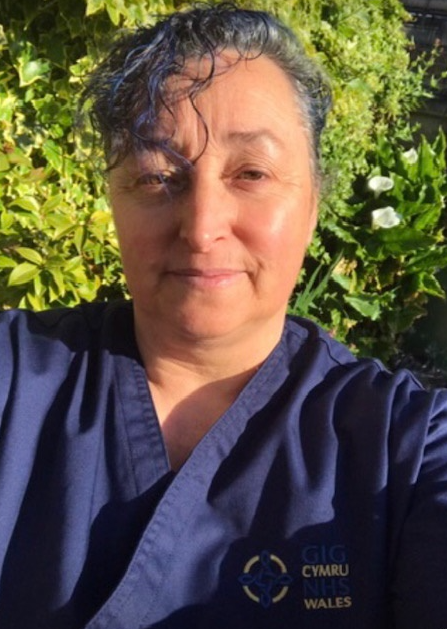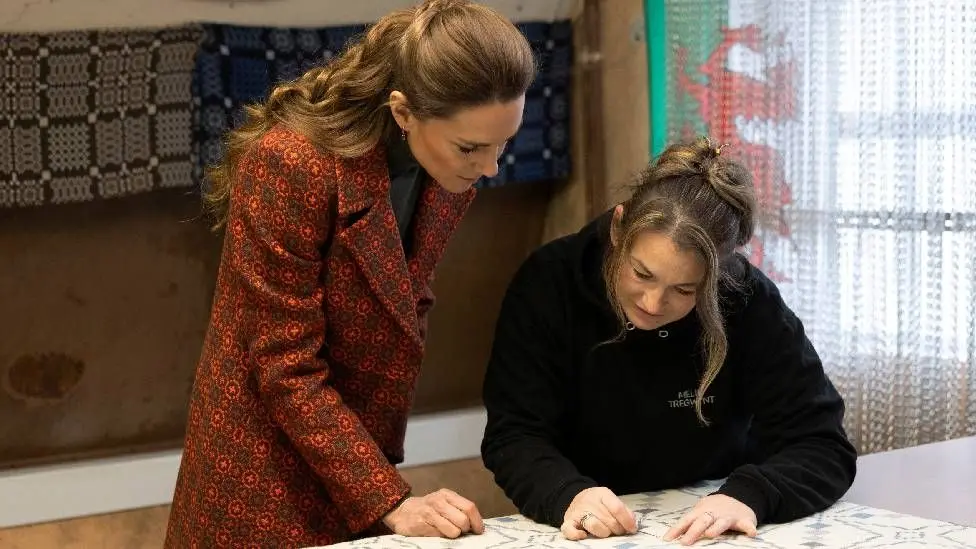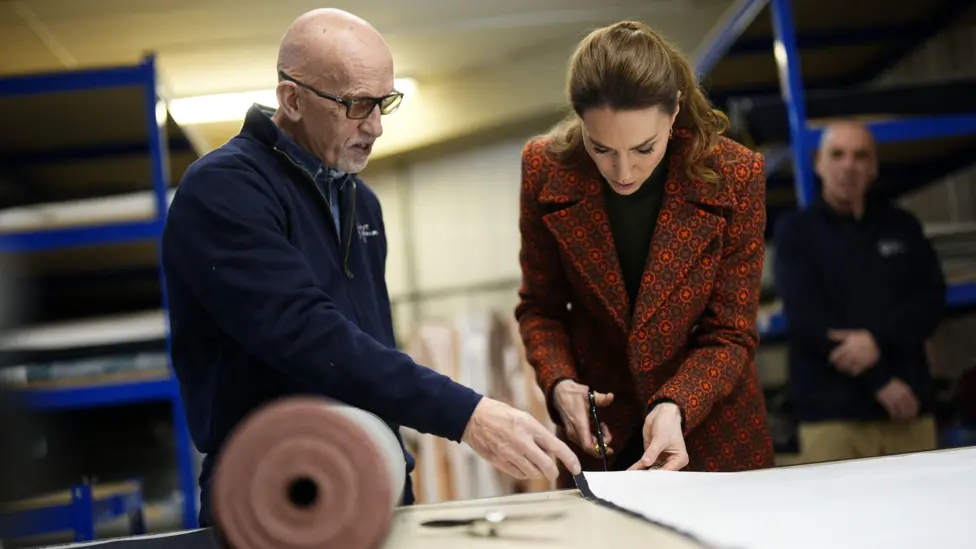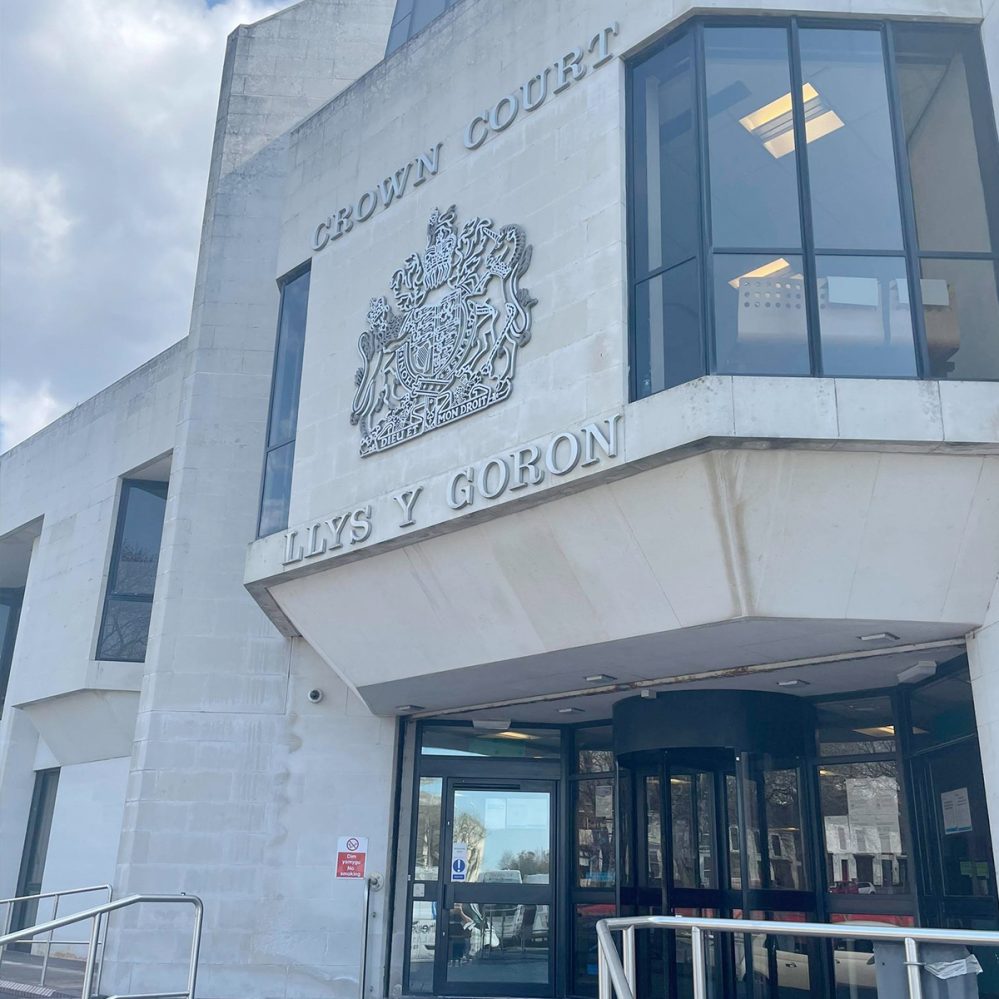News
Mental health worker says COVID-19 has made mental health topic ‘more visible’

A Hywel Dda mental health worker voices how the pandemic has impacted the topic of mental health and made it more acceptable to talk about.
Katherine Lewis, Team Manager for the Older Adult Community Mental Health Team says it’s not surprising that mental health cases have increased since COVID-19.
“There was a lot of fear during the first COVID wave, as there was a lot of negative coverage in the tabloids.
“A lot of patients struggled. There was a lot of isolation, and the informal support they would receive from friends, neighbours and family had stopped.”
Katherine and her team cover the Pembrokeshire area, but mostly care for patients within their own homes.
“We’ll go out to see people with mental health problems that have also got severe or enduring health problems that impact on their function.
“There are risks involved. We provide assessment and interventions to minimise the risk involving wandering, aggression, distress and low mood, and hopefully promote recovery.”
Prior to the pandemic Katherine and her team would not wear uniform on shift, however uniforms were safer and practical after COVID-19 hit.
“Communication was quite difficult for people with dementia, not understanding the PPE and why we were wearing masks in their home.
“We had to keep reassuring them and explaining. But for people with dementia, particularly it can cause a lot of additional distress and difficulties.”
“We would provide letters in assessments for patients to be able to get out in the car, to minimise some distress that they felt.”
Care packages stopped during the pandemic to minimise contact, meaning patients weren’t receiving their regular visits from carers.
“When you’ve got someone with dementia those regular contacts with loved ones and carers are very important.
“The lack of fresh air, being out in nature, it can affect people’s mental health negatively if you haven’t got access to those resources.
“We were lucky that in quite a few areas in Pembrokeshire there’s still a sense of community and a lot of support going on.”
Katherine’s husband was working in Mumbai and quarantined alone for 7 months during the pandemic, before he retired and returned home in 2020.
“I did worry about his health because he had nobody there with him. I would have worried if he’d been quite unwell over there.
“Luckily, he didn’t catch COVID-19 while he was over there which is good. He then managed to come home in October.”
Katherine and her husband reside in Pembrokeshire, but they had previously lived abroad, in places such as Alaska and Texas.
“I would have found it really difficult to be living abroad during COVID-19and not be here to support my parents and my in-laws.
“I was glad to be home when it happened. I was very protective and didn’t want any of them leaving the house.
“I would do stuff for them. Whatever needed to be done if it would minimise the risk to them because they’re all over 70.”
Katherine also lives with her daughter who was home-schooled and working towards her GCSE qualifications during the pandemic.
“She was a lot of strength for me because she never complained once and she was always upbeat and helpful when I got home.”
Listen to Katherine’s full podcast here (also available on Spotify).
Listen to other episodes here
Community
Princess of Wales praised for ‘skill’ during local wool mill and factory visit

Royal tour shines spotlight on west Wales textile heritage and local jobs
CATHERINE, Princess of Wales was told “she’s got the skill” after trying her hand at traditional textile work during a visit to west Wales on Tuesday (Feb 3).
The royal spent the day meeting staff and apprentices at two well-known manufacturers – Melin Tregwynt in Pembrokeshire and Hiut Denim in Cardigan – highlighting the region’s long-standing reputation for craftsmanship and small-scale, high-quality production.
Stitching and mending at historic mill

At Melin Tregwynt, a family-run woollen mill that now operates as an employee-owned trust, the princess was guided through each stage of production, from weaving to finishing.
In the quality control room she was invited to mend a blanket using a needle and thread, carefully repairing the fabric under the watchful eye of experienced staff.
Paula Harding, who has worked at the mill for more than a decade, praised her technique, saying: “She did it right – and she didn’t go through the other side. That’s skill. She’s got the skill.”
Laughing, the princess told workers: “You make it look so easy,” adding that the craft was clearly “a labour of love”.
She asked questions about the history of the business, which has produced Welsh-designed blankets and throws for more than a century, and spoke with several generations of the same families who have worked at the mill.
‘Made in Wales’ denim

Later, the princess travelled to Hiut Denim, the Cardigan-based firm credited with bringing jeans manufacturing back to the town after large factories closed in the early 2000s.
The company now focuses on small-batch, premium denim and employs skilled cutters and machinists locally.
During a tour of the factory floor, the princess tried cutting out a pair of jeans and helped stitch a “Made in Wales” label onto a finished pair that staff said would be presented to the Prince of Wales.
“He will love those,” she replied.
She joked that there was “no pressure” when handed the cutting tools and said she enjoys making clothes herself, admitting the most adventurous project she had attempted was sewing a pair of pyjamas.
The royal also stopped to greet Barney, the factory’s English cocker spaniel, drawing smiles from staff.
Meeting well-wishers

Crowds gathered outside both sites to catch a glimpse of the visitor, with the princess spending time chatting with families and children before moving on.
The visit forms part of ongoing efforts by the royal household to showcase traditional industries and skilled manufacturing across the UK, with west Wales’ textile sector recognised as a key part of the region’s heritage and economy.
For workers at both businesses, the message was simple: the spotlight on locally made products and homegrown skills was just as important as the royal presence itself.

Crime
Man spared jail after admitting child abuse image offences

Police seized devices after intelligence linked Pembrokeshire address to illegal cloud storage accounts
A 23-YEAR-OLD Pembrokeshire man has avoided immediate custody after admitting making and possessing indecent images of children, including extreme bestiality material.
Ryan Beale, aged 23, appeared at Swansea Crown Court for sentencing this week.
At his first hearing, before magistrates on December 31, he entered guilty pleas and being granted conditional bail.
The court heard the case followed an intelligence-led police investigation linking Beale to a Dropbox account suspected of storing illegal material. Officers executed a warrant at his home on December 18.
During his arrest, Beale told officers: “I don’t use Dropbox,” claiming his email and Google accounts had been compromised.
However, police seized his mobile phone and computer equipment. A forensic examination found the email address connected to the Dropbox account stored on his device. Although the account had also been accessed from overseas locations, including Nigeria, investigators were satisfied it was controlled by Beale and linked to a larger cloud storage account containing significant volumes of illegal content.
Officers discovered 120 Category A images, 36 Category B images and 29 Category C images.
Category A represents the most serious level of abuse.
The material included extreme and disturbing bestiality content. Further Category C images were also located within the Dropbox account.
Two identified victims depicted in the images were girls aged nine and eleven.
Beale initially denied the allegations but later admitted the offences.
Passing sentence, at Swansea Crown Court on Tuesday (Feb 3) the His Honour Geraint Walters said: “This was not an innocent pastime. Every time an adult views that image, a child is still being abused.”
He added that an early guilty plea had spared Beale immediate custody but warned the offences would have lifelong consequences.
“The public have no time for anybody doing this,” the judge said. “If you’re doing this, the police will find out. They didn’t knock on your door randomly — they knew what they were looking for.”
Beale was sentenced to eight months’ imprisonment, suspended for two years. He must complete 20 days of rehabilitation activity and pay £300 in prosecution costs.
The court also imposed a Sexual Harm Prevention Order, ordered the forfeiture and destruction of his electronic devices, and placed him on the Sex Offenders Register for ten years.
“If you keep yourself out of trouble, you won’t have to serve that custodial sentence,” the judge told him.
Entertainment
One Night in Dublin returns to the Torch with a brand-new show

ONE NIGHT IN DUBLIN is heading back to the stage at the Torch Theatre with a lively new production fronted by renowned Irish singer Danny Muldoon.
Tickets are already selling fast for the feel-good celebration of Irish music, which promises two hours of songs, stories and plenty of craic.
Backed by an award-winning five-piece band, Muldoon leads audiences through a packed set of sing-along favourites including Galway Girl, Tell Me Ma, The Irish Rover, Dirty Old Town, Whiskey in the Jar, The Wild Rover and The Galway Shawl, along with many more well-loved classics.
The show recreates the atmosphere of a bustling Dublin pub, complete with fiddle, whistle, guitars, banjo, bodhrán, accordion and driving drums, transporting the audience straight into “Murphy’s Tavern” for an unforgettable night of live entertainment.
Fans can also expect hits from Irish legends including The Pogues, The Saw Doctors, The Dubliners, The Fureys, Flogging Molly and Dropkick Murphys.
One Night in Dublin comes to the Torch Theatre on Thursday, March 26 at 7:30pm.
Tickets cost £26.50. Visit the theatre website or call the Box Office on (01646) 695267 to book.

-

 Health5 days ago
Health5 days agoConsultation reveals lack of public trust in health board
-

 News6 days ago
News6 days agoCaldey still unsafe, survivors warn — despite Abbey’s reform claims
-

 Community6 days ago
Community6 days agoPembrokeshire students speak at national Holocaust Memorial Day event
-

 News11 hours ago
News11 hours agoPrincess of Wales visits historic Pembrokeshire woollen mill
-

 Crime4 days ago
Crime4 days agoPembroke man accused of child sex offences sent to Swansea Crown Court
-

 News6 days ago
News6 days agoKurtz raises Gumfreston flooding in the Senedd as petition deadline nears
-

 Education6 days ago
Education6 days agoAttendance concerns at Milford School reflect wider issue raised at the Senedd
-

 Community6 days ago
Community6 days agoCampaign to ‘save’ River Cleddau hits over 2,200 signatures




























